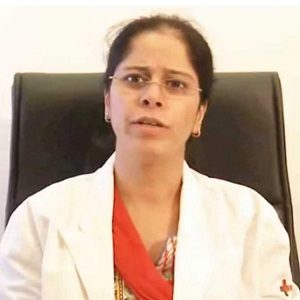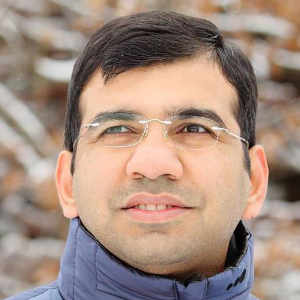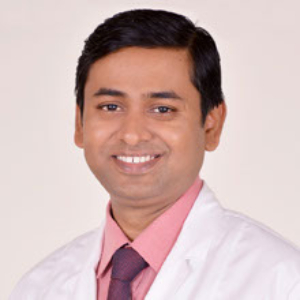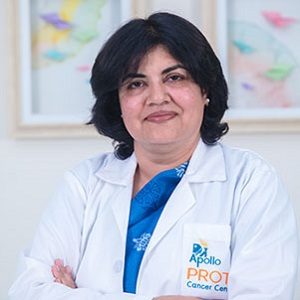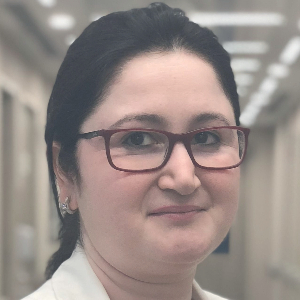Best Doctors in India for Alcoholic Hepatitis Treatment
- Dermatologist, Gurugram, India
- Over 22 years’ experience
Profile Highlights:
- Dr. Sheilly Kapoor has been at the top level of expert Dermatologists in India. She has served numerous people throughout her career.
- Dr. Kapoor has been attending many national and international conferences to give lectures on various topics of Dermatology with the main focus being on the removal of acne scars.
- Pediatric Gastroenterologist, New Delhi, India
- Over 10 years’ experience
Profile Highlights:
- Dr. Sharat Varma is an accomplished surgeon in his field of Paediatric Gastroenterology, Hepatology, and Liver Transplantation.
- He has to his credit, many awards, recognitions, and publications.
- General & Laparoscopic Surgeon, New Delhi, India
- Over 65 years’ experience
Profile Highlights:
- Dr. B M L Kapur is one of the best Colorectal surgeons in India. He has extensive experience of 65 years in General & Laparoscopic Surgery.
- Dr. Kapur works as a senior consultant at Indraprastha Apollo Hospitals in New Delhi, where he specializes in general surgery, advanced laparoscopic surgery, minimal access surgery, bariatric surgery, trauma surgery, surgical critical care, laparoscopic surgery, breast, cardiothoracic, colorectal, endocrine, vascular, and reconstructive surgery are among his specialties.
- He was also the former Director of the All India Institute of Medical Science’s Cancer Hospital and HOD of Surgery.
- Dr. Kapur has many awards and orations to his credit. He has published many papers in significant medical journals.
- Neurologist, New Delhi, India
- Over 18 years’ experience
Profile Highlights:
- With 18+ years of experience in the field of neurology, Dr. Mukesh Kumar is one of the most prominent names in neuroscience, renowned for his expertise in the treatment of diseases like Myasthenia Gravis, Parkinson’s Disease, Botulism, and Movement Disorders.
- He is Gold Medalist in MBBS from Banaras Hindu University, India.
- Radiation Oncologist, Chennai, India
- Over 33 years’ experience
Profile Highlights:
- Dr. Sapna Nangia is a highly proficient clinical and radiation oncologist with versatile experience in cancer management.
- She has an experience of more than thirty-three years as a doctor and twenty-four years as a doctor across various eminent institutions in the country.
- Dr. Sapna Nangia has been trained for proton therapy at Miami Cancer Care, New York
- Obstetrician & Gynaecologist, Gurugram, India
- Over 30 years’ experience
Profile Highlights:
- Dr. Anjali Kumar is a renowned gynecological endoscopic surgeon, who has done certificate courses as well as training at the World Association of Laparoscopic Surgeons and Ethicon Endosurgery Institute in New Delhi.
- Her technique was presented, published, and also accepted at the apex national conference at the Kumar’s Technique. She has also featured in several talk shows in different shows in multiple TV channels like NDTV, Doordarshan, The People, Khabrein Aaj Tak, etc.
- IVF Specialist & Gynaecologist, Mumbai, India
- Over 17 years’ experience
Profile Highlights:
- Dr. Sneha Sathe is a consultant gynecologist and infertility specialist in Mumbai and associated with Nova IVI Fertility.
- She has close to a decade of experience in the field of ART and Reproductive medicine and has achieved several successful pregnancies through IVF, IUI, ICSI, and other techniques of assisted reproduction.
- Dr. Sneha Sathe finds special interest in mild IVF and is also experienced in other aspects of gynecology such as management of PCOS, recurrent implantation failure, endometriosis, and failed IVF cycles.
- IVF Specialist & Gynaecologist, Gurugram, India
- Over 18 years' experience
Profile Highlights:
- Dr. Meenakshi Dua is a well-known gynecologist in India specializing in IVF and Infertility.
- She has an experience of 18+ years in the field of infertility treatment and has helped a large number of people with infertility issues.
- Dr. Meenakshi Dua is an expert in all kinds of Assisted Reproductive Technology and is highly trained in reproductive endocrinology, fetal Doppler, and advanced-level ultrasounds in gynecology and obstetrics.
- Obstetrician & Gynaecologist, New Delhi, India
- Over 20 years’ experience
Profile Highlights:
- A qualified and reputed medical practitioner Dr. Asawari Kesari Kapoor is among the celebrated gynecologists and obstetrician doctors in Delhi. With years of experience, she is proficient in identifying, diagnosing, and treating various health issues and problems related to her field.
- Dr. Asawari Kesari Kapoor completed her MBBS from the University of Mumbai, in 1999, and her DGO from the same university in 2002.
- She later got her diploma in Gynecology and Obstetrics from the College of Physicians and Surgeons in 2004. She is currently practicing as a Senior Consultant at Indraprastha Apollo Hospitals.
- IVF Specialist & Gynaecologist, Kolkata, India
- Over 10 years’ experience
Profile Highlights:
- Dr. Moumita Naha is a consultant Gynecologist and Obstetrician in Kolkata.
- Dr. Naha is one of the best infertility experts in Kolkata and has assisted in achieving several successful pregnancies in women with various fertility issues.
- She is an expert in IVF, IUI, ICSI, management of infertile couples, recurrent IVF failure, recurrent miscarriage, endometriosis, reproductive endocrinology, sexual medicine, and Andrology.
Best Hospitals in India for Alcoholic Hepatitis Treatment
ALCOHOLIC HEPATITIS
Alcoholic hepatitis is a liver infection, which is mainly caused by frequent, heavy use of alcohol. Fat can build up in the liver cells, which might lead to inflammation as well as scarring of the liver.
Alcoholic hepatitis might be mild or severe. A patient might even need a liver transplant if proper treatment is not provided, or if they don’t stop consumption of alcohol.
It is also notable that all heavy drinkers don’t develop this condition, and sometimes this condition even develops in people who drink moderately. However, if you are diagnosed with this condition, it is important for you to quit drinking alcohol. People who continue drinking alcohol might face a huge risk of serious liver damage as well as death.
Symptoms
Depending on the amount of damage to the liver, the symptoms can vary. If you are having a mild form of the disease, you might not even experience any symptoms at all. However, as the damage continues to grow, you might experience the following:
- Changes in appetite
- Dry mouth
- Weight loss
- Pain or swelling in the abdomen
- Jaundice, or yellowing of the skin or eyes
- Fever
- Nausea and vomiting
- Easy bleeding or bruising
- Changes in your mental state, including confusion
- Fatigue
The symptoms of this condition are similar to those caused by a few other health conditions. Therefore, if you develop any of these symptoms, it is best to get a proper diagnosis as well as begin treatment.
Causes & risk factors
Alcoholic hepatitis generally develops when the alcohol you drink causes damage to your liver. However, it is not clear why alcohol does this damages only to some heavy drinkers.
Few factors that are known to play a role in this condition include:
- The body’s process that breaks down alcohol produces some toxic chemicals
- These chemicals can trigger inflammation that can destroy the liver cells
- Thus, over time, scars replace healthy liver tissue, thus interfering with the function of the liver
- This irreversible scarring, which is also termed cirrhosis, is the final stage of alcoholic liver disease
If you have hepatitis C and continue to drink, even moderately, you are more likely to develop cirrhosis.
Some heavy drinkers are also malnourished because they don’t eat a proper balanced diet. Alcohol and its byproducts also prevent the body from absorbing nutrition properly. Lack of nutrition can contribute to liver cell damage.
Some other risk factors that can lead to this condition include:
- Your sex- Women are usually at a higher risk of developing alcoholic hepatitis since the way alcohol is processed in women is different.
- Binge drinking- Having over five drinks within two hours for men and four or more for women can increase the risk of alcoholic hepatitis.
- Obesity- Heavy drinkers who are overweight are also more likely to develop alcoholic hepatitis and to progress from that condition to cirrhosis.
- Race and ethnicity- Hispanic and Negroid people might be at higher risk of alcoholic hepatitis.
- Genetic factors- According to studies, there may be a genetic component in alcohol-induced liver disease. However, it is difficult to separate genetic and environmental factors.
Diagnosis
If you are showing symptoms of alcoholic hepatitis, your doctor will first inquire about your medical history and alcohol consumption. Next, he/she will perform a physical exam to see if you have an enlarged liver or spleen. They might also need a few more tests to confirm your diagnosis, such as:
- Complete blood count (CBC)
- Liver function test
- Ultrasound of the liver
- Abdominal CT scan
- Blood clotting tests
In some cases, a liver biopsy might also be needed to confirm the diagnosis of alcoholic hepatitis. A liver biopsy requires your doctor to remove a tissue sample from your liver, which is then tested in the lab. This method helps to show the severity and type of liver disease.
Treatment
Stopping alcohol consumption is the most important treatment for alcoholic hepatitis. There is no cure for this condition, but treatment can help in reducing or eliminating symptoms, or stopping its progression.
It is also important to note that scarring of the liver is permanent, but treatment can aim to restore as much function as possible.
Dietary changes
Medication
Liver transplant
The best hope of recovery is to be aware of the signs and symptoms as well as to reduce, manage, or if possible, completely stop consumption of alcohol.
Complications
Alcoholic hepatitis might lead to severe other complications such as:
- Enlarged veins (varices)- In this condition, blood that is unable to flow freely through the portal vein, can back up into other blood vessels in your esophagus or stomach.
- Hepatic encephalopathy- This condition can be caused by the buildup of toxins if your damaged liver is unable to remove all the toxins from your body. It involves confusion, drowsiness, and slurred speech.
- Ascites- Ascites is a condition in which the fluid that accumulates in the abdomen may get infected and thus, require treatment with antibiotics. Although this condition is not life-threatening, it can be a sign of advanced alcoholic hepatitis, or cirrhosis.
- Kidney failure- A damaged liver affects blood flow to the kidneys, thus resulting in kidney failure.
- Cirrhosis- The scarring of the liver might lead to liver failure.
Prevention
Alcoholic hepatitis might be prevented if you take the following steps:
- Drink alcohol in moderation, if at all- For healthy adults, moderate drinking means no more than one drink a day for women of all ages and men older than 65, and not over two drinks a day for men aged 65 and younger. However, if you prevent all alcohol, it is a certain way to prevent this condition.
- Check before mixing medications and alcohol- Ask your doctor if it’s safe to drink alcohol while you are taking medications. Consider reading the warning labels on over-the-counter medications as well. Don’t drink alcohol when you are taking medications that warn of complications when combined with alcohol.
- Protect yourself from hepatitis C- Hepatitis C is an infectious liver disease that is caused by a virus. If it is left untreated, it may lead to cirrhosis. If you are having hepatitis C and you consume alcohol, you’re generally more likely to develop cirrhosis than if you don’t drink.

